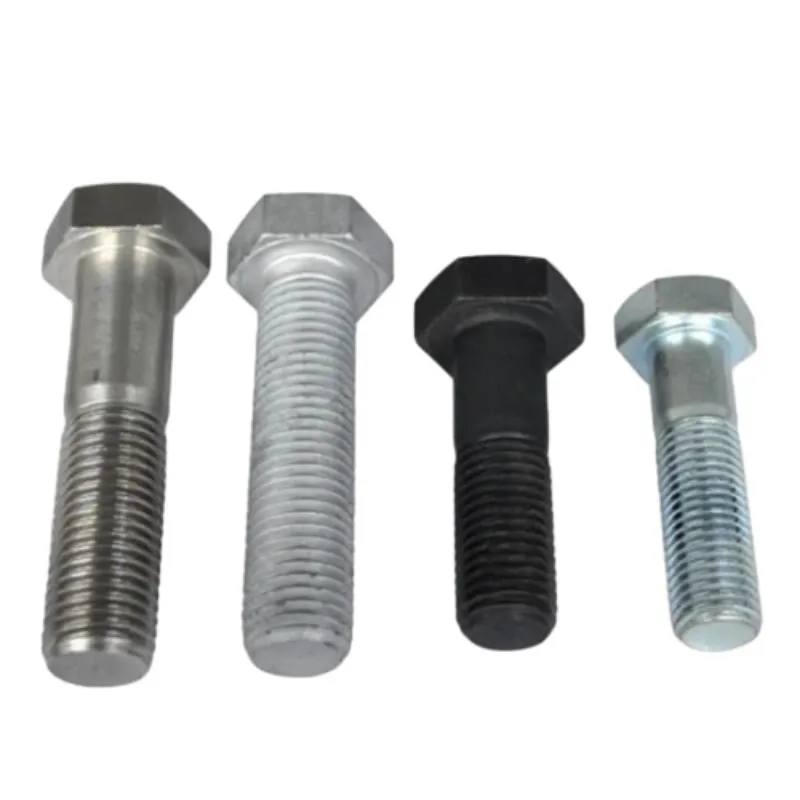Nov . 12, 2024 19:07 Back to list
foundation bolts
Understanding Foundation Bolts Essential Components for Structural Integrity
Foundation bolts are critical components in construction and engineering, serving as the backbone for various structures, from residential buildings to towering skyscrapers. They provide stability and strength, anchoring structures to their foundations and ensuring they can withstand various forces, including wind, seismic activities, and the weight of the structure itself. This article delves into the importance of foundation bolts, their types, applications, and factors to consider during their installation.
The Importance of Foundation Bolts
Foundation bolts play an essential role in the overall safety and durability of a structure. They connect the building framework to its foundation, creating a secure bond that prevents lateral movement and uplift. This function is particularly vital in areas prone to earthquakes, where the stability provided by foundation bolts can significantly reduce the risk of structural failure.
Moreover, foundation bolts are instrumental in maintaining the alignment of the structural elements. Uneven settling of a building can lead to misalignment, which can compromise the integrity of walls, beams, and roofs. By securely anchoring these components, foundation bolts help to ensure the building maintains its designed shape and stability throughout its lifespan.
Types of Foundation Bolts
Several types of foundation bolts are commonly used in construction, each designed for specific applications and load requirements
1. J-Bolts Shaped like the letter J, these bolts are often used in concrete foundations. The hook or J end embeds in the concrete, providing a secure anchor point for the structure above.
2. L-Bolts Similar to J-bolts, L-bolts have a straight shaft with a bend at one end. They are typically used in situations where a vertical load needs to be resisted, such as attaching structures to concrete pads.
3. Anchor Bolts These are heavy-duty bolts designed to hold down larger structural components, such as columns or heavy machinery. They often come with various lengths and diameters to accommodate different load requirements and are typically embedded in the concrete foundation.
foundation bolts

4. Epoxy-Coated Bolts In corrosive environments, using epoxy-coated foundation bolts can offer added protection. The coating helps to prevent rust and deterioration over time, ensuring the longevity of the bolts and the structure.
Key Considerations for Installation
When it comes to the installation of foundation bolts, several factors need to be considered to ensure maximum efficacy
1. Load Requirements The first step in determining the type and size of the foundation bolts needed is understanding the load requirements of the structure. Consulting with structural engineers can provide valuable insights into selecting the appropriate bolts.
2. Concrete Strength The compressive strength of the concrete foundation is crucial when installing foundation bolts. If the strength is inadequate, it can lead to bolt loosening or failure over time.
3. Correct Placement Proper placement of foundation bolts is essential for their effectiveness. They should be positioned in accordance with engineering specifications, ensuring they are aligned with the structural framework they will support.
4. Corrosion Resistance In environments exposed to moisture or chemicals, opting for corrosion-resistant bolts is essential to prolong their lifespan and maintain structural integrity.
5. Regular Inspections Finally, ongoing maintenance and inspection of foundation bolts should not be overlooked. Regular checks for loosening, rust, or other deformities can help identify issues before they become critical.
Conclusion
Foundation bolts are indispensable in modern construction, playing a pivotal role in ensuring the safety, stability, and longevity of structures. Their ability to secure buildings to their foundations makes them crucial, especially in earthquake-prone and high-wind areas. By understanding the different types of foundation bolts, their applications, and the factors that influence their installation, builders and engineers can enhance the structural integrity of buildings and more effectively safeguard against the forces of nature. Whether erecting a small home or a massive skyscraper, the importance of foundation bolts cannot be overstated.


